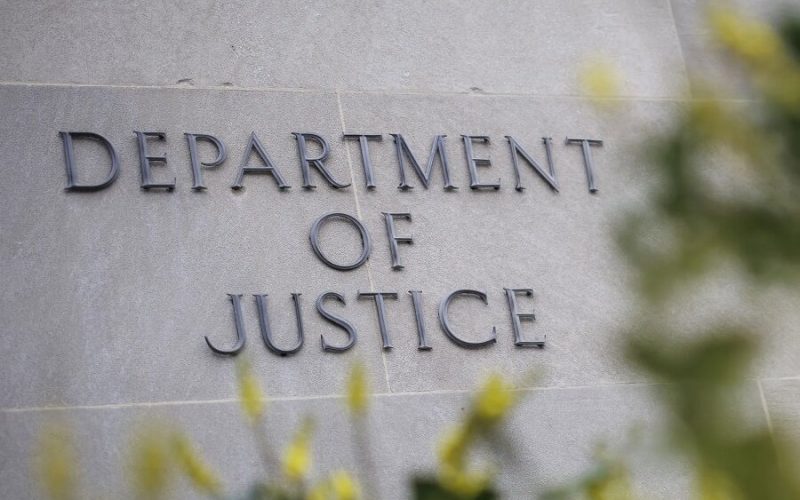The Department of Justice (DOJ) and 16 states filed a civil lawsuit against Apple Inc. on Thursday, alleging that the company unlawfully monopolized the smartphone market.
The Department of Justice (DOJ) and attorneys general from 16 states have accused Apple of trying to limit competition, which they argue hurts consumers, small businesses, and app developers.
They claim that Apple’s tight control over its App Store and other features has limited options for users. Apple has defended its strict rules for App Store downloads, asserting that they are necessary to maintain user privacy and security.
However, the expansive lawsuit alleges that Apple engages in various illegal practices, asserting its dominance over automotive services, news services, digital wallets, and imposing restrictions on third-party apps.
Additionally, it contends that the tech giant, headquartered in Cupertino, California, exerts control over messages sent from iPhones to non-iPhone users through its default messaging service.
The DOJ accused Apple of engaging in monopolistic behavior by ensuring that its Apple Watch is exclusively compatible with iPhones.
“Consumers should not have to pay higher prices because companies violate the antitrust laws,” Attorney General Merrick Garland said in a statement announcing the lawsuit.
“If left unchallenged, Apple will only continue to strengthen its smartphone monopoly,” he added.
Moreover, the lawsuit alleges that Apple illegally monopolizes the smartphone market by enforcing contractual limitations and withholding essential access from developers.
Apple has previously faced antitrust investigations and rulings in Europe, Japan, and Korea, and has been sued by corporate competitors like Epic Games.
“Each step in Apple’s course of conduct built and reinforced the moat around its smartphone monopoly,” the DOJ complaint against Apple also read.
“The cumulative effect of this course of conduct has been to maintain and entrench Apple’s smartphone monopoly at the expense of the users, developers, and other third parties who helped make the iPhone what it is today.”
Apple has staunchly defended its “walled garden” approach, arguing it offers consumers top-tier protection for their personal data and appeals to those who prefer a seamless Apple ecosystem. This strategy distinguishes iPhones from Android devices, which are less restrictive and widely licensed to various manufacturers.
Antitrust concerns surrounding Apple’s business model have contributed to a decline in its stock price, compounded by perceptions of lagging behind Microsoft and Google in artificial intelligence development.
The DOJ’s complaint portrays Apple’s walled garden as a tool to stifle competition, allowing the company to maintain high prices and profit margins while impeding innovation.
“For years, Apple responded to competitive threats by imposing a series of ‘Whac-A-Mole’ contractual rules and restrictions that have allowed Apple to extract higher prices from consumers, impose higher fees on developers and creators, and to throttle competitive alternatives from rival technologies,” DOJ Assistant Attorney General of the antitrust division Jonathan Kanter said in a statement Thursday.
Earlier this year, Apple announced its compliance with a new European Union law requiring smartphone manufacturers to allow users to download apps from third-party stores, not just the company’s App Store. This marks the first time Apple has made such adjustments.
On March 15, the tech giant agreed to settle a class-action lawsuit for $490 million. The lawsuit alleged that CEO Tim Cook misled shareholders by not disclosing declining iPhone demand in China. Although Apple previously denied liability, it chose to settle to avoid the costs and distractions of litigation.
Apple posted $97 billion of net income in its latest fiscal year, and the recent payout equates to a little under two days of profit.
Apple responded to the lawsuit by expressing concerns that it could jeopardize the company’s very existence while setting a “dangerous precedent” that will impact other businesses.
Share your thoughts by scrolling down to leave a comment.

